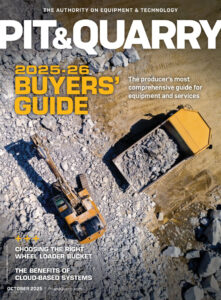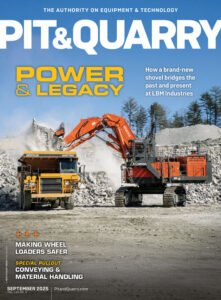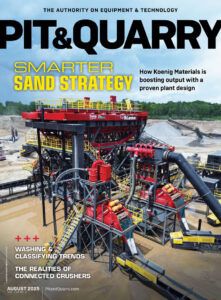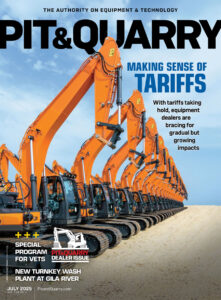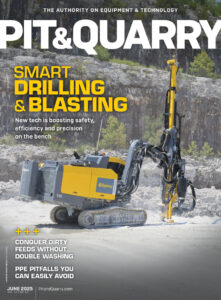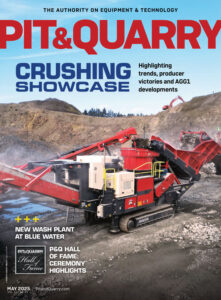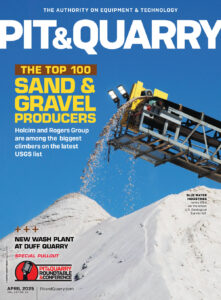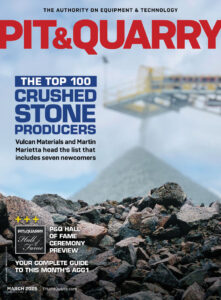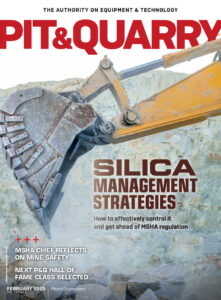McLanahan Corp. hosted its first Wet Processing School in Altoona, Pa. The event, which attracted more than 140 aggregate producers, covered traditional sand processing and offered information on equipment, settling ponds, configurations and more.
“Obviously, in the industry, there’s a lot of need for training,” says Mark Krause, general manager of McLanahan’s aggregate processing division. “Opportunities to get knowledgeable people in front of producers to teach them what to look for and how to look for it are critical.”
The McLanahan event kicked off with a welcoming followed by a general session on the sand processing evolution. Rick Madara, director of sales for McLanahan’s aggregate processing division, and Scott O’Brien, the company’s global director of process engineering delivered the general session. Madara discussed different types of sand processing equipment, explaining the pros and cons of each, and O’Brien reviewed the three basic types of plants, including classifying tanks and screws, cyclones and dewatering screens, and recipe sand plants, or hydrosizers.
The Wet Processing School featured a mix of general sessions and breakout sessions, each lasting one hour. Each of the four general sessions – sand processing, fines recovery, water management and coarse washing – led into three topic-specific breakout sessions. Guests had the opportunity to choose from a variety of breakout session topics. Some covered traditional sand processing, processing equipment, hydrosizers and fractionated plants, thickeners, filter presses and polymer dosing.
Dylan Heath, process engineer for McLanahan’s aggregate processing division, led the processing equipment breakout session. Heath provided an overview of processing equipment, from cyclones to spray bars to separators. Heath covered best washing practices, as well as equipment maintenance and troubleshooting.
“This is important [to learn] so that the customer can make adjustments using the knowledge [on how to] improve their process,” Heath says. “They don’t have to rely on people like us for everything. They can perform some of the tasks themselves.”
Stephen Shortsleeve, McLanahan’s regional sales manager for the aggregate processing division, spearheaded the event’s traditional sand processing breakout session. During his presentation, Shortsleeve keyed in on sand classifying tanks and their major components.
McLanahan had hosted similar events for individual companies prior to the Wet Processing School. This new event united a mix of large and small companies.
“[Events like this are] great for manufacturers to speak to their customers, to the dealers, and maybe clue them in on some of the nuances about the equipment and the processes they’re putting into their plants,” O’Brien says. “A better-educated operator just means that things are going to go smoother at the plant.”
Here are some tips from McLanahan employees on the best strategies for maintaining your equipment, water conservation and more.


